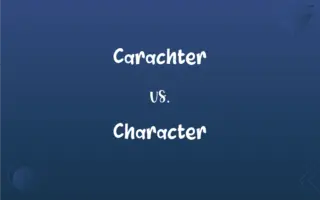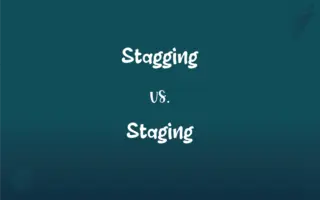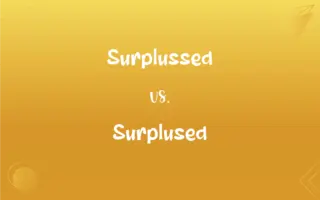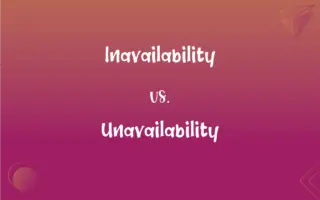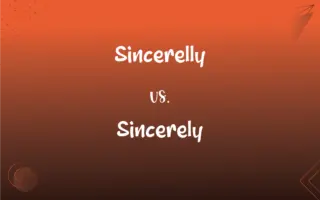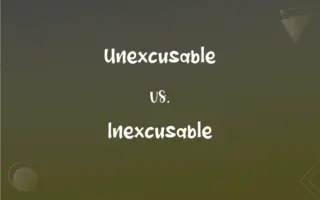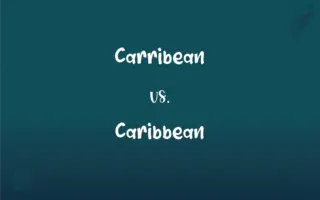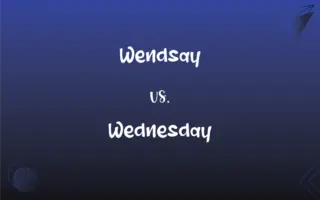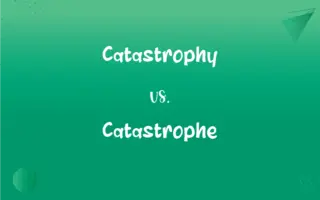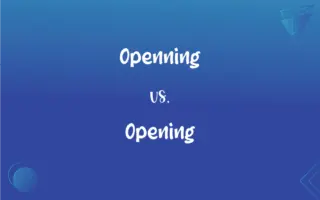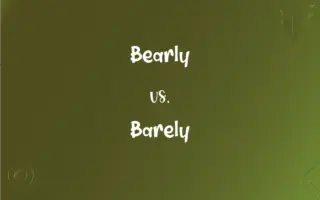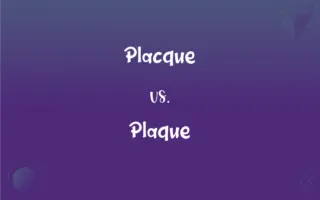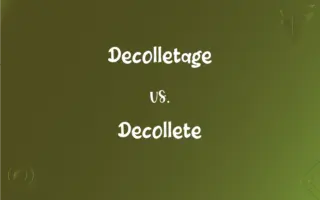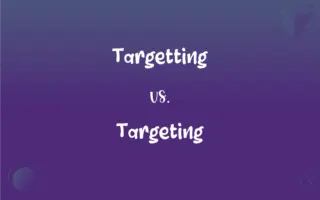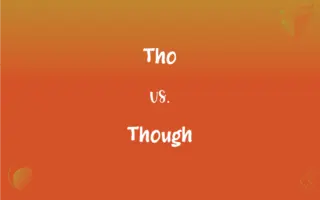Conscent vs. Consent: Mastering the Correct Spelling
Edited by Harlon Moss || By Janet White || Updated on March 12, 2024
Conscent is an incorrect spelling. The correct spelling is "consent," which refers to permission or agreement.

Which is correct: Conscent or Consent
How to spell Consent?

Conscent is Incorrect

Consent is Correct
ADVERTISEMENT
Key Differences
"Consent" has the same number of letters as "permit", which also relates to giving permission.
Use the mnemonic "Can One Not Seek Consent Every New Time?" where each word's initial forms "CONSENT".
Focus on the root word "sense" which is related to feeling or perception, helping remember the correct spelling without the additional "c".
Think of the phrase "Can I get a yes to consent?" where "yes" emphasizes the single 's' in the middle.
Remember "consent" is shorter and simpler, which mirrors the act of giving a straightforward permission.
ADVERTISEMENT
Correct usage of Consent
Without parental conscent, the trip cannot proceed.
Without parental consent, the trip cannot proceed.
She gave her conscent for the medical procedure.
She gave her consent for the medical procedure.
They could not proceed without the necessary conscent.
They could not proceed without the necessary consent.
He signed a conscent form before the surgery.
He signed a consent form before the surgery.
The study requires the conscent of all participants.
The study requires the consent of all participants.
Consent Definitions
"Consent" means the voluntary approval of what is planned by another.
They signed the document after mutual consent.
"Consent" refers to the act of willingly agreeing or giving permission.
She gave her consent for the procedure.
"Consent" also denotes acceptance or compliance in a particular condition.
He did not consent to the new terms.
"Consent" implies a clear expression of agreement to something.
Without your consent, we won't proceed.
To give assent, as to the proposal of another; agree
Consent to medical treatment.
Consent to going on a business trip.
Consent to see someone on short notice.
(Archaic) To be of the same mind or opinion.
Acceptance or approval of what is planned or done by another; acquiescence.
Agreement as to opinion or a course of action
She was chosen by common consent to speak for the group.
(intransitive) To express willingness, to give permission.
After reflecting a little bit, I've decided to consent.
To cause to sign a consent form.
To grant; to allow; to assent to.
To agree in opinion or sentiment; to be of the same mind; to accord; to concur.
Voluntary agreement or permission.
(obsolete) Unity or agreement of opinion, sentiment, or inclination.
(obsolete) Advice; counsel.
To indicate or express a willingness; to yield to guidance, persuasion, or necessity; to give assent or approval; to comply.
My poverty, but not my will, consents.
And whispering "I will ne'er consent," - consented.
To grant; to allow; to assent to; to admit.
Interpreters . . . will not consent it to be a true story.
Agreement in opinion or sentiment; the being of one mind; accord.
All with one consent began to make excuse.
They fell together all, as by consent.
Correspondence in parts, qualities, or operations; agreement; harmony; coherence.
The melodious consent of the birds.
Such is the world's great harmony that springsFrom union, order, full consent of things.
Voluntary accordance with, or concurrence in, what is done or proposed by another; acquiescence; compliance; approval; permission.
Thou wert possessed of David's throneBy free consent of all.
Capable, deliberate, and voluntary assent or agreement to, or concurrence in, some act or purpose, implying physical and mental power and free action.
Sympathy. See Sympathy, 4.
Permission to do something;
He indicated his consent
Give an affirmative reply to; respond favorably to;
I cannot accept your invitation
I go for this resolution
"Consent" can also mean an agreement about an opinion or about a course of action.
The board acted with the consent of all members.
Consent Sentences
Consent must be given freely and without coercion.
Without mutual consent, the agreement is invalid.
Before we start, we need your consent to use your data.
She withdrew her consent at the last minute.
The law requires written consent for these procedures.
For research purposes, informed consent is essential.
Parental consent is required for minors to participate.
He gave his consent with a nod.
The form clearly states that your consent is voluntary.
Your consent can be withdrawn at any time.
Without your consent, we cannot proceed.
They reached an agreement through mutual consent.
The app requires user consent to access location data.
They shared confidential information with his consent.
The contract was signed with the consent of all parties.
Consent to treatment must be based on understanding the risks.
Obtaining consent is a crucial step before any medical intervention.
She asked for their consent to publish the photographs.
Her parents gave their consent for the school trip.
Everyone participating in the study gave their consent.
The policy change was made with the employees' consent.
The doctor asked for her consent before the examination.
Consent forms are a standard procedure before surgery.
Consent is a fundamental principle in ethics.
The project moved forward with the board's consent.
Consent Idioms & Phrases
By mutual consent
When two or more parties agree on something together.
They decided to end the partnership by mutual consent.
Without consent
Doing something without someone's permission or agreement.
Sharing someone's personal information without consent is a violation of privacy.
Consent of the governed
The idea that a government's legitimacy and moral right to use state power is only justified and lawful when consented to by the people over whom that political power is exercised.
The concept of democracy is based on the consent of the governed.
Silent consent
Implied consent through the absence of any objection rather than explicit approval.
Not saying anything about the plan was taken as silent consent.
Age of consent
The age at which a person is considered legally competent to consent to sexual activities.
The age of consent varies by country and state.
With one's consent
Having someone's approval or permission.
The teacher spoke to the counselor about the student's progress with his parents' consent.
Informed consent
A process for getting permission before conducting a healthcare intervention on a person, based on an understanding of the risks and benefits involved.
Doctors must ensure informed consent is obtained before performing surgery.
Consent decree
A legal agreement that resolves a dispute between two parties without admission of guilt and with no legal decision being made.
The company entered into a consent decree to settle the lawsuit without admitting fault.
Express consent
Consent that is clearly and unmistakably stated, rather than implied.
She gave her express consent for her medical records to be shared with the specialist.
To give consent
To agree to something or allow something to happen.
He gave his consent for the interview to be published.
FAQs
What is the pronunciation of Consent?
The pronunciation is "kən-ˈsent".
What is the root word of Consent?
The root word is "consentire" from Latin.
Which vowel is used before Consent?
The vowel "a" can be used before "consent" (e.g., "a consent form").
What is the verb form of Consent?
The verb form is "consent" (e.g., I consent to this action).
Why is it called Consent?
It is called "consent" derived from the Latin word "consentire" which means to feel together or agree.
Which preposition is used with Consent?
The preposition "to" is often used with "consent" (e.g., consent to treatment).
What is the singular form of Consent?
The singular form is "consent".
What is the plural form of Consent?
The plural form can be "consents" in some contexts, especially when referring to multiple instances of agreement.
Which article is used with Consent?
The article "the" can be used with "consent" (e.g., "the consent of the governed").
Is Consent a negative or positive word?
"Consent" is neutral but implies a voluntary agreement, which can be positive depending on context.
Is Consent a noun or adjective?
"Consent" is primarily a noun but can also be a verb.
Is Consent an abstract noun?
Yes, "consent" is an abstract noun as it refers to an idea or concept rather than a physical entity.
Is Consent a collective noun?
No, "consent" is not a collective noun.
Is the Consent term a metaphor?
No, "consent" is not a metaphor.
Is the word Consent imperative?
No, "consent" itself is not imperative, but requests for consent can be phrased in the imperative mood.
What is a stressed syllable in Consent?
The stressed syllable is "sent".
What is the second form of Consent?
As a verb, the second form is "consented".
Which conjunction is used with Consent?
There isn't a specific conjunction exclusively used with "consent"; it varies based on the sentence.
What is the first form of Consent?
The first form, as a verb, is "consent".
How do we divide Consent into syllables?
It is divided as con-sent.
What part of speech is Consent?
"Consent" is primarily a noun but can also be used as a verb.
What is another term for Consent?
Another term for "consent" is "approval" or "permission".
How many syllables are in Consent?
There are two syllables in "consent".
Which determiner is used with Consent?
Determiners such as "the", "a", or "an" can be used with "consent" depending on the context.
Is Consent an adverb?
No, "consent" is not an adverb.
Is Consent a vowel or consonant?
"Consent" is a word; it contains both vowels and consonants.
Is Consent a countable noun?
It can be in some contexts (e.g., multiple instances or forms of agreement).
What is the opposite of Consent?
The opposite of "consent" can be "refusal" or "dissent".
What is the third form of Consent?
As a verb, the third form is "consented".
How is Consent used in a sentence?
In a sentence, "consent" can be used like this: "She provided her consent to participate in the study."
About Author
Written by
Janet WhiteJanet White has been an esteemed writer and blogger for Difference Wiki. Holding a Master's degree in Science and Medical Journalism from the prestigious Boston University, she has consistently demonstrated her expertise and passion for her field. When she's not immersed in her work, Janet relishes her time exercising, delving into a good book, and cherishing moments with friends and family.
Edited by
Harlon MossHarlon is a seasoned quality moderator and accomplished content writer for Difference Wiki. An alumnus of the prestigious University of California, he earned his degree in Computer Science. Leveraging his academic background, Harlon brings a meticulous and informed perspective to his work, ensuring content accuracy and excellence.

